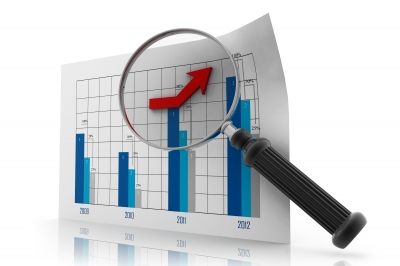If you’re ready to do some investing, you need a broker to be able to buy stocks, options, and pretty much anything else. Deciding on the right broker for you can be difficult. If you’ve made the rounds of the local brokerage firms you’ll notice a trend: they all charge a lot in commissions. If you start looking online you’ll notice the commissions are decidedly lower but are these brokers a good deal or just a good deal of trouble?
Getting A Deal Is Not Always A Deal

But, what if you’re not a professional? You don’t have any experience trading? When you’re first starting out, it may pay to use a local broker – that way you get more than just the trade. You get advice about when to buy, when to sell, and when to hold. But local brokers are notorious for selling newbies junk they want to get rid of or of trying “churn and burn” which means they encourage you to buy and sell often, in an effort to generate more commissions.
Availability Is Key,
One of the biggest drawbacks to choosing an online broker is availability. Online brokerages are set up for DIY investors. It assumes you already have a good grasp on investing and don’t need much help. Some online companies may provide more personalized services, but you will not have a specific person to call, you will get the next person who picks up the phone. If you decide to go the online brokerage route, check to find one with additional optional services and educational programs. You might consider checking to see if the broker works on commission many online brokers do not, so you don’t have to worry about them encouraging you to do something that is really in their best interests, not yours.
Check The Broker’s Background
What other people say about the brokerage does matter. Just as you would research a company before buying its stock, you should research a broker before giving him your money or taking his advice. Some brokers are really good at analyzing stocks, but not all of them are. Sound incredible? It’s not. Brokers are only required to pass state and federal licensing exams that certify them to sell securities. They don’t have to pass any standard test to analyze them and make profitable trades. And if a broker was really good at picking stocks, he would be doing it for his own account or working for a hedge fund not trying to sell you stocks.
Check Minimum Deposits
Some brokers have minimum deposits that are above your means. Expect $500 to $10,000 or more minimums.
Make Sure The Right Products Are Available
Do you want to trade stocks, options, or bonds? All three? Make sure your broker trades them all. Not all brokers want to cater to every investor. They may only offer one or two types of investments. Fortunately, figuring out whether your broker deals in the investments you want is pretty easy. All you have to do is ask.
Extras Worth Considering
Some brokers will try to entice you by offering you $100 to start trading once you make your initial deposit. Other brokers will offer you free trades if you maintain a minimum balance. Still, other brokerages offer personalized service – including discounted personal trades (i.e. you get help with your trades via a real broker).
But don’t just jump on the bandwagon with someone who is offering you free trading. Choose a broker that offers you services that you know you’ll use. For example, if you’ll be trading mostly mutual funds, look for brokers that offer free trades on these investments. But, if you’ll be trading mostly options, what does it matter that you get free trades on funds or even stocks?
Customer Service Counts
What good is an online broker if he doesn’t have good customer service. Some companies excel at this. Others, not so much. One way to test out the customer service is to call their tradeline and pretend to be a customer. How long were you on hold? Once you get a broker on line, they will want to know your account number. At that point, you will have to tell them that you are considering their firm. Tell them you don’t want to talk to sales but just want to ask them some questions. A good company will answer your questions about how to execute trades and what types of services they can provide.
If you choose an online brokerage there are basically two ways to execute trades, you can enter them via an online computer platform or you can call the broker to execute them for you. If you have questions, calling will get you the most assistance, even if it is technically an “online” brokerage.
You may also like:
- How to Open a Brokerage Account
- Stock Market: When Do I Buy a “Buy”?
- Do You Have Enough Retirement Income to Not Worry?
- Bank Safety: How to Protect Your Cash in Times of Crisis
- High Yield Dividend Stocks: What Every Investor Should Look For
Jarryd Harden is a veteran in finance. He enjoys blogging about money management and smart investing.
Image courtesy of D.D. Pavumba/ FreeDigitalPhotos.net





Admiring the time and effort you put into your blog and
in depth information you present. It’s good to come across
a blog every once in a while that isn’t the same outdated rehashed information. Excellent read!
I’ve bookmarked your site and I’m including your RSS feeds to my Google
account.